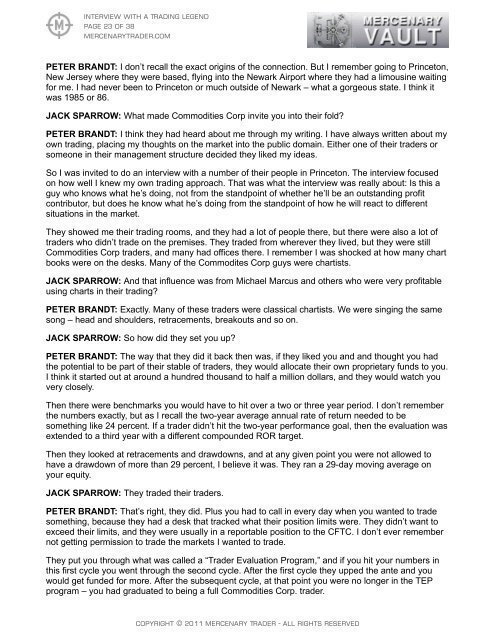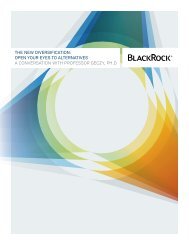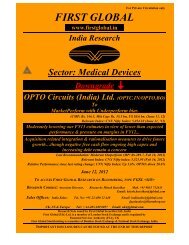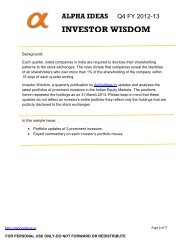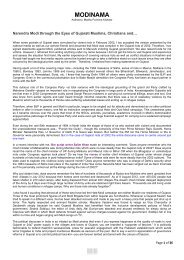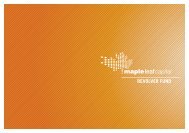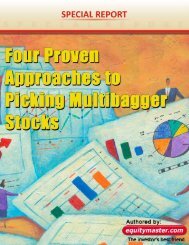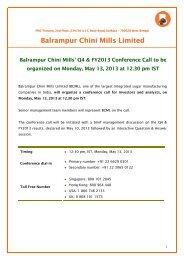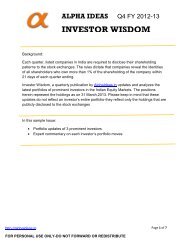Interview With a Trading Legend - Mercenary Trader
Interview With a Trading Legend - Mercenary Trader
Interview With a Trading Legend - Mercenary Trader
You also want an ePaper? Increase the reach of your titles
YUMPU automatically turns print PDFs into web optimized ePapers that Google loves.
<strong>Interview</strong> <strong>With</strong> a <strong>Trading</strong> <strong>Legend</strong><br />
Page 23 of 38<br />
mercenarytrader.com<br />
PETER BRANDT: I don’t recall the exact origins of the connection. But I remember going to Princeton,<br />
New Jersey where they were based, flying into the Newark Airport where they had a limousine waiting<br />
for me. I had never been to Princeton or much outside of Newark – what a gorgeous state. I think it<br />
was 1985 or 86.<br />
JACK SPARROW: What made Commodities Corp invite you into their fold?<br />
PETER BRANDT: I think they had heard about me through my writing. I have always written about my<br />
own trading, placing my thoughts on the market into the public domain. Either one of their traders or<br />
someone in their management structure decided they liked my ideas.<br />
So I was invited to do an interview with a number of their people in Princeton. The interview focused<br />
on how well I knew my own trading approach. That was what the interview was really about: Is this a<br />
guy who knows what he’s doing, not from the standpoint of whether he’ll be an outstanding profit<br />
contributor, but does he know what he’s doing from the standpoint of how he will react to different<br />
situations in the market.<br />
They showed me their trading rooms, and they had a lot of people there, but there were also a lot of<br />
traders who didn’t trade on the premises. They traded from wherever they lived, but they were still<br />
Commodities Corp traders, and many had offices there. I remember I was shocked at how many chart<br />
books were on the desks. Many of the Commodites Corp guys were chartists.<br />
JACK SPARROW: And that influence was from Michael Marcus and others who were very profitable<br />
using charts in their trading?<br />
PETER BRANDT: Exactly. Many of these traders were classical chartists. We were singing the same<br />
song – head and shoulders, retracements, breakouts and so on.<br />
JACK SPARROW: So how did they set you up?<br />
PETER BRANDT: The way that they did it back then was, if they liked you and and thought you had<br />
the potential to be part of their stable of traders, they would allocate their own proprietary funds to you.<br />
I think it started out at around a hundred thousand to half a million dollars, and they would watch you<br />
very closely.<br />
Then there were benchmarks you would have to hit over a two or three year period. I don’t remember<br />
the numbers exactly, but as I recall the two-year average annual rate of return needed to be<br />
something like 24 percent. If a trader didn’t hit the two-year performance goal, then the evaluation was<br />
extended to a third year with a different compounded ROR target.<br />
Then they looked at retracements and drawdowns, and at any given point you were not allowed to<br />
have a drawdown of more than 29 percent, I believe it was. They ran a 29-day moving average on<br />
your equity.<br />
JACK SPARROW: They traded their traders.<br />
PETER BRANDT: That’s right, they did. Plus you had to call in every day when you wanted to trade<br />
something, because they had a desk that tracked what their position limits were. They didn’t want to<br />
exceed their limits, and they were usually in a reportable position to the CFTC. I don’t ever remember<br />
not getting permission to trade the markets I wanted to trade.<br />
They put you through what was called a “<strong>Trader</strong> Evaluation Program,” and if you hit your numbers in<br />
this first cycle you went through the second cycle. After the first cycle they upped the ante and you<br />
would get funded for more. After the subsequent cycle, at that point you were no longer in the TEP<br />
program – you had graduated to being a full Commodities Corp. trader.<br />
Copyright © 2011 <strong>Mercenary</strong> <strong>Trader</strong> - All Rights Reserved


